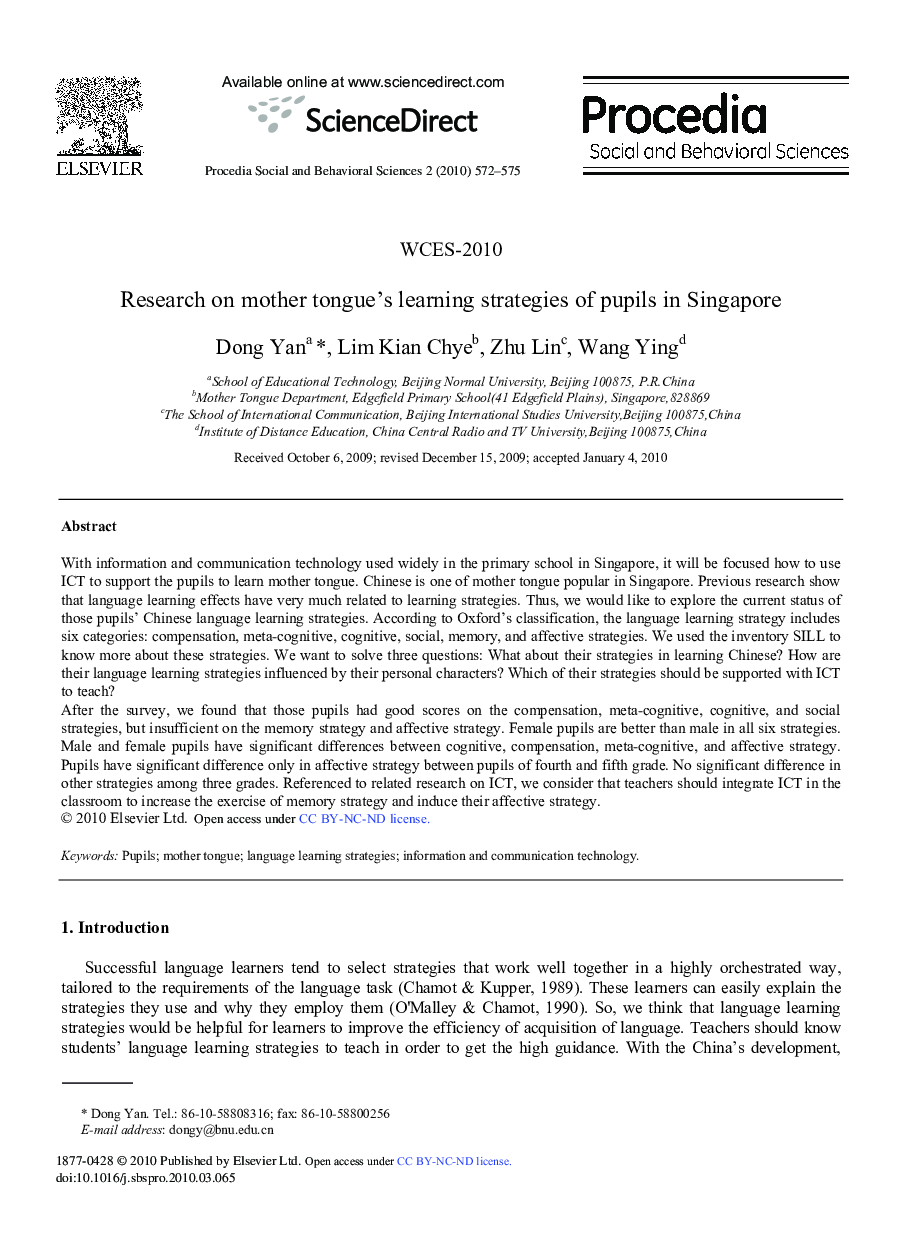| Article ID | Journal | Published Year | Pages | File Type |
|---|---|---|---|---|
| 1125463 | Procedia - Social and Behavioral Sciences | 2010 | 4 Pages |
With information and communication technology used widely in the primary school in Singapore, it will be focused how to use ICT to support the pupils to learn mother tongue. Chinese is one of mother tongue popular in Singapore. Previous research show that language learning effects have very much related to learning strategies. Thus, we would like to explore the current status of those pupils’ Chinese language learning strategies. According to Oxford's classification, the language learning strategy includes six categories: compensation, meta-cognitive, cognitive, social, memory, and affective strategies. We used the inventory SILL to know more about these strategies. We want to solve three questions: What about their strategies in learning Chinese? How are their language learning strategies influenced by their personal characters? Which of their strategies should be supported with ICT to teach?After the survey, we found that those pupils had good scores on the compensation, meta-cognitive, cognitive, and social strategies, but insufficient on the memory strategy and affective strategy. Female pupils are better than male in all six strategies. Male and female pupils have significant differences between cognitive, compensation, meta-cognitive, and affective strategy. Pupils have significant difference only in affective strategy between pupils of fourth and fifth grade. No significant difference in other strategies among three grades. Referenced to related research on ICT, we consider that teachers should integrate ICT in the classroom to increase the exercise of memory strategy and induce their affective strategy.
